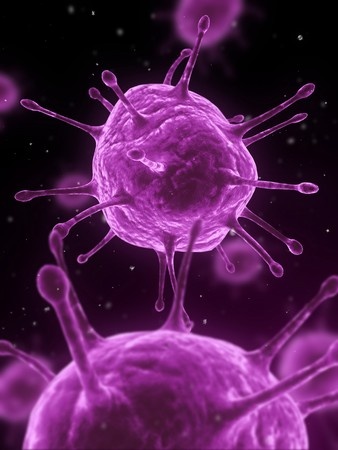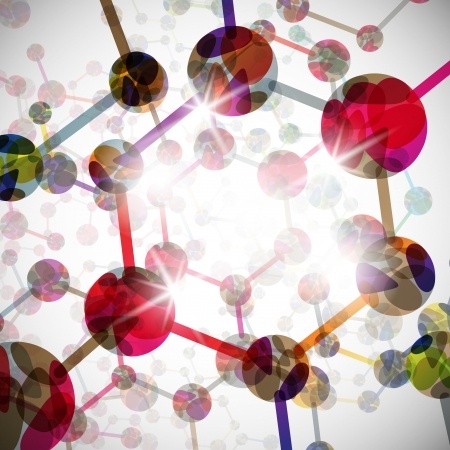Flu, icebergs, colliding galaxies, concussions and carbon making more than four bonds – imagine the possible discussions in your science class to kick off the new calendar year. These and other cool ideas are in today’s eclectic collection of SciNews. Share these stories with your students and get them excited about science.
 Biology
Biology
Canada is in the midst of a rough flu season and the worst is yet to come. Globe and Mail
Influenza cases are spiking across the country and infectious-disease experts warn the worst may be yet to come.
So far, flu activity in Canada resembles the 2014-15 season, a brutal year characterized by a hard-hitting H3N2 virus and low vaccine effectiveness rates, said Danuta Skowronski, epidemiology lead for influenza and emerging respiratory pathogens at the B.C. Centre for Disease Control. The elderly are being “disproportionately affected,” Dr. Skowronski said, with a number of outbreaks at long-term care facilities being reported. There was a major jump in flu cases over the holidays, as people gathered together, but Dr. Skowronski said she suspects there could be a new surge in the coming weeks.
Meat-eating pitcher plants raise deathtraps to an art. Science News
Tricking some bug into drowning takes finesse, especially for a hungry meat eater with no brain, eyes or moving parts. Yet California pitcher plants are very good at it.
Growing where deposits of the mineral serpentine would kill most other plants, Darlingtonia californica survives in low-nutrient soil by being “very meat dependent,” says David Armitage of the University of Notre Dame in Indiana. Leaves he has tested get up to 95 percent of their nitrogen from wasps, beetles, ants or other insects that become trapped inside the snake-curved hollow leaves.
Using fat to help wounds heal without scars. Science Daily
Doctors have found a way to manipulate wounds to heal as regenerated skin rather than scar tissue. The method involves transforming the most common type of cells found in wounds into fat cells — something that was previously thought to be impossible in humans.
Blood test could predict recovery time after concussions. Science Mag
In athletes who suffered a concussion, a protein in their blood may be able to predict when they can return to action. A new study finds that those who took longer to return to play had higher levels of a protein known as tau in their blood in the 6 hours following the trauma than players who were cleared to return to the field sooner. Tau blood testing isn’t ready for prime time, but experts say that if it pans out it would become an invaluable tool for coaches and physicians alike.
Chemistry

Carbon can exceed four-bond limit. Science News
A molecule originally proposed more than 40 years ago breaks the rules about how carbon connects to other atoms, scientists have confirmed. In this unusual instance, a carbon atom bonds to six other carbon atoms. That structure, mapped for the first time using X-rays, is an exception to carbon’s textbook four-friend limit, researchers report in the Jan. 2 Angewandte Chemie.
Debate heats up over claims that hot water sometimes freezes faster than cold. Science News
It seems logical to expect cold water to freeze faster than hot, but some experiments have suggested the opposite. There’s now a new explanation for why hot water might freeze faster than cold under certain conditions. The phenomenon, known as the Mpemba effect, may be due to the properties of the chemical bonds that link up neighboring water molecules, a team of chemists reports. Yet other researchers contend that the effect doesn’t exist at all.
Physics
Automakers take differing routes to self-driving future. CBC
If there’s one thing some of the world’s biggest automakers can agree on, it’s that the arrival of self-driving cars is just a few years away. But as for how to get there, everyone’s taking a different path.
At this year’s CES, the annual consumer technology show in Las Vegas, car companies pitched their respective visions for an autonomous future, and some are more ambitious than others.
Earth and Space Science
Huge iceberg ready to break off Antarctica: scientists. CBC
vast iceberg, expected to be one of the biggest ever recorded, with an area almost the size of Prince Edward Island, is poised to break off Antarctica.
A rift, slowly developing across the Larsen C ice shelf on the Antarctic Peninsula in recent years, expanded abruptly last month, growing by about 18 kilometres. It is now more than 80 kilometres long with just 20 kilometres left before it snaps, scientists said.
Warming could disrupt Atlantic Ocean current. Science News
Spewing too much carbon dioxide into the atmosphere could shut down the major ocean current that ferries warm water to the North Atlantic, new climate simulations suggest. While not as extreme as the doomsday scenario portrayed in the movie The Day After Tomorrow, such a shutdown could cause wintertime temperatures to plummet by an estimated 7 degrees Celsius or more in northwestern Europe and shift rainfall patterns across the globe.



